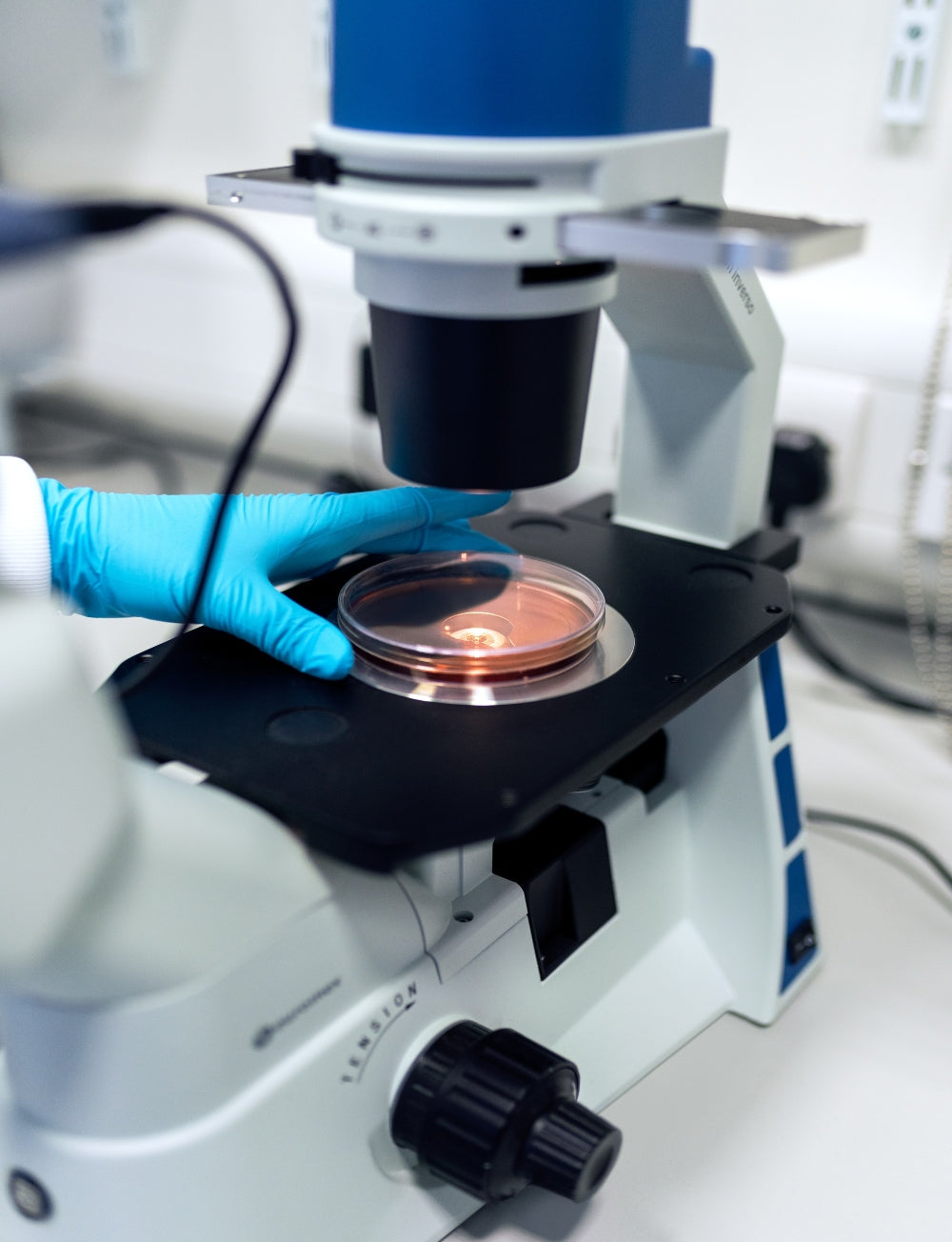Female IVF Foundation Support Pack
£116.75 Save £20.60
ICSI stands for Intracytoplasmic Sperm Injection. It is a specialized form of in vitro fertilisation (IVF) that involves injecting a single sperm directly into an egg to achieve fertilisation.

Both ICSI (intracytoplasmic sperm injection) and IVF(in-vitro fertilisation) are both assisted reproductive treatment (ART) procedures in which eggs are fertilised outside the body.
The main differences are:
ICSI: In ICSI, a single healthy sperm is selected and injected directly into a mature egg using a thin glass needle. This bypasses any barriers that may prevent natural sperm-egg interaction and facilitates fertilisation.
IVF: In IVF, eggs and sperm are combined in a laboratory dish, and fertilisation occurs naturally, as the sperm swim to the eggs and penetrate the eggs to fertilise them.
Some common indications for ICSI in these cases include:
Male factor infertility: If the male partner has low sperm count, poor sperm motility, or abnormal sperm morphology, ICSI can be used to directly inject sperm into the egg, increasing the chances of successful fertilisation.
Previous IVF failures: Couples or individuals who have experienced multiple failed IVF cycles or fertilisation difficulties in previous attempts may benefit from ICSI as a more targeted approach to achieve fertilisation.
Absence or blockage of sperm ducts: If a partner has obstructive azoospermia, where the sperm ducts are blocked or absent, sperm can be retrieved through testicular or epididymal aspiration and used for ICSI to fertilise eggs.
Ejaculation issues: Those facing ejaculation problems, such as retrograde ejaculation or anejaculation, may benefit from ICSI to achieve fertilisation using their own eggs or donor eggs.
Use of frozen sperm: Those using frozen sperm samples, which may have lower motility compared to fresh sperm, can benefit from ICSI to improve the chances of successful fertilisation when using their own eggs or donor eggs.

Ovarian stimulation via hormones takes place to produce multiple mature eggs. The mature eggs are then retrieved from the ovaries using a minimally invasive procedure.

A semen sample is collected/donated and then prepared in the laboratory to select the most viable sperm for injection.

A single sperm is carefully injected into the cytoplasm of each mature egg using a fine needle. Eggs are then checked the following day to confirm successful fertilisation. The fertilised eggs are cultured for a few days to allow for development.

One or more embryos are transferred into the uterus in a separate procedure. After two weeks a blood test is performed to determine is pregnancy has occurred.
ICSI is a specialized technique used in fertility treatment where a single sperm is directly injected into an egg to achieve fertilisation. This differs from In Vitro Fertilization (IVF), where sperm and eggs are combined in a dish and left to fertilise without additional assistance.
The success rates of ICSI can vary depending on various factors such as age, the quality of the sperm and eggs, and overall health and wellbeing. However, overall, ICSI has been shown to have similar success rates to IVF in achieving pregnancy and live birth.
Common supplements that may be recommended for couples undergoing ICSI treatment can include folate, Coenzyme Q10, Vitamin D, and antioxidants. We recommend our Male Fertility Plus Pack, which includes the supplements we recommend for supporting sperm health. To support egg health, we recommend our Ultimate Egg Health pack.

It can be difficult to know which supplements to take throughout your fertility journey. Our product recommendation quiz will inform you of the best products to take for your specific stage.